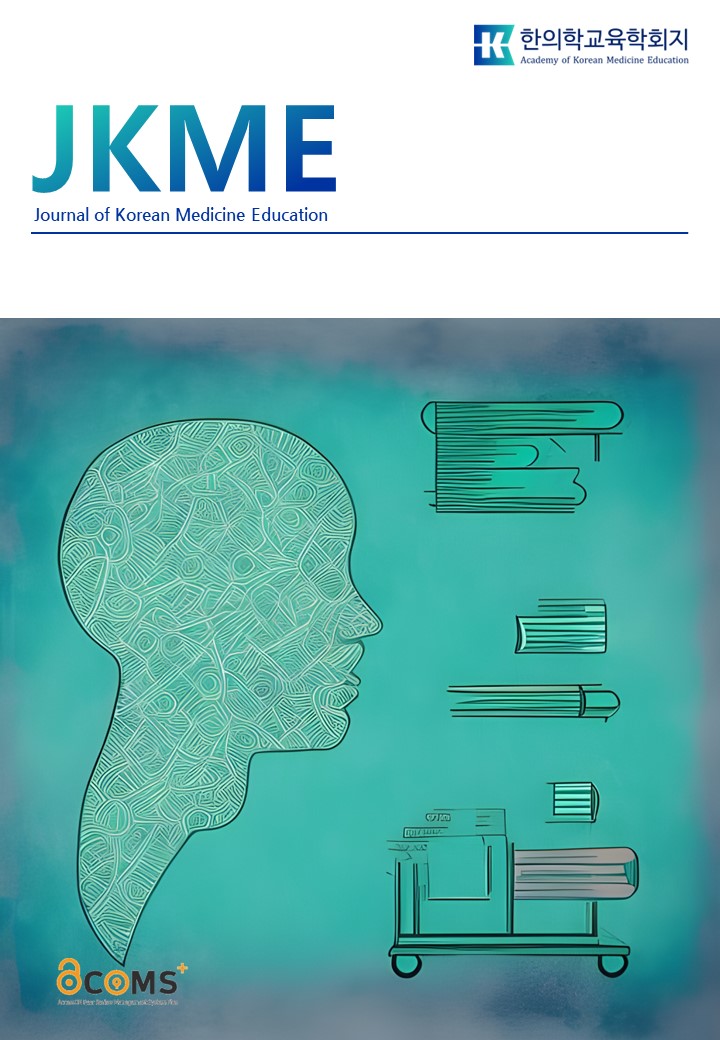- KOREAN
- E-ISSN2983-3973
 E-ISSN : 2983-3973
E-ISSN : 2983-3973
The change of practical exam scores according to repeated musculoskeletal ultrasound training: Protocol for a prospective observational study
Eunbyul Cho (Korean Medicine Science Research Division, Korea Institute of Oriental Medicine)
Hyun-Jong Jung (Department of Diagnostics, College of Korean Medicine, Wonkwang University)
Jungtae Leem (Department of Diagnostics, College of Korean Medicine, Wonkwang University)

Abstract
Background: With the rapid growing demand in the Korean Medicine community, hands-on ultrasound training is expected to expand in undergraduate Korean Medicine education. However, hands-on training requires costly ultrasound equipment and instructors, necessitating preliminary studies to assess the feasibility and expected effectiveness of the training. This study aims to explore changes in student performance with repeated practice to identify the minimum time required for effective ultrasound hands-on training. Methods: This prospective observational study will be conducted at a College of Korean Medicine in South Korea. A 4-week musculoskeletal ultrasonography training program will be implemented, consisting of three repetitive hands-on training and four practical examinations for three modules of different difficulty levels. A total of 30 second or third-year students of Korean Medicine will be recruited. The data to be analyzed include participant characteristics, practical examination scores for each session, and pre- and post-training survey scores. Repeated measure ANOVA will be used to examine whether there is a significant difference in scores between the rounds of the practical exam. Discussion and conclusion: This study will provide novel evidence regarding each student’s appropriate time on probe for effective ultrasound training in Korean Medicine education. Students’ perceptions and self-efficacy towards ultrasonography and feedback on the training program will contribute to designing and developing ultrasound training programs.
- keywords
- Clinical skills, Hands-on training, Practical examination, Time on probe, Ultrasonography
- Submission Date
- 2024-08-11
- Revised Date
- 2024-08-22
- Accepted Date
- 2024-08-22
- Downloaded
- Viewed
- 0KCI Citations
- 0WOS Citations

